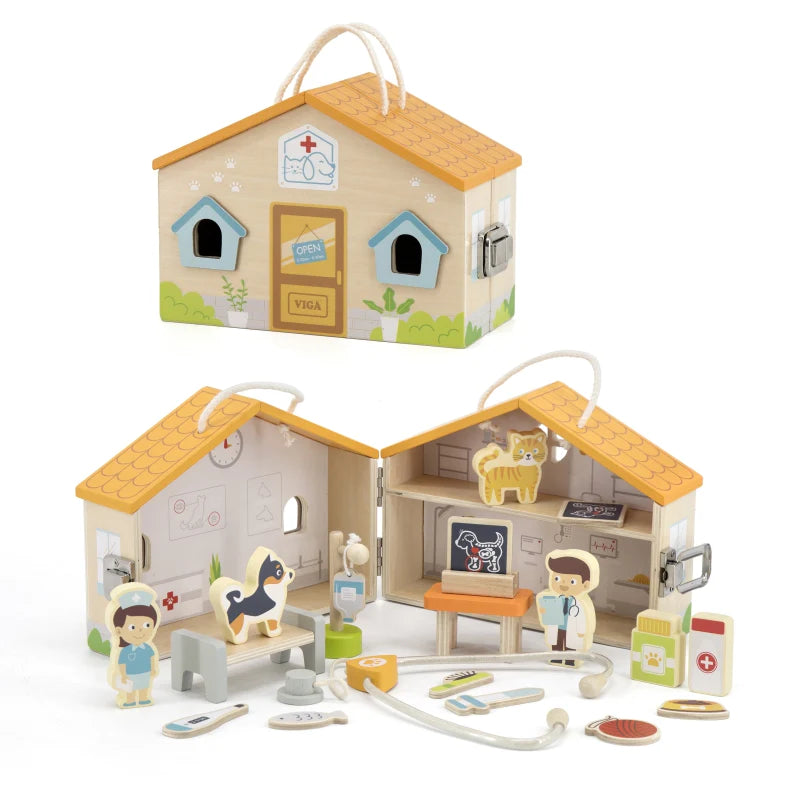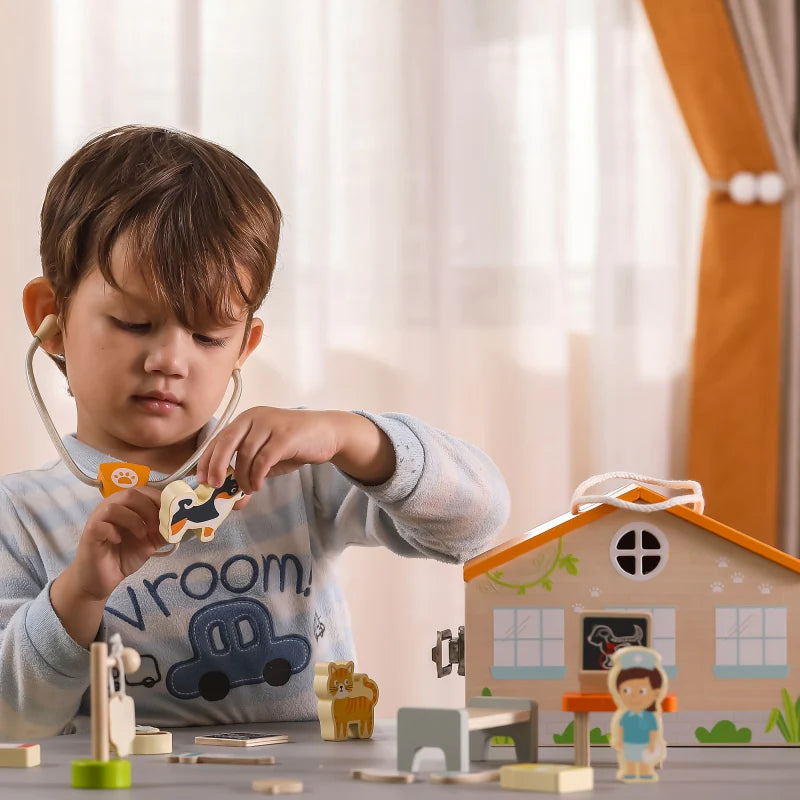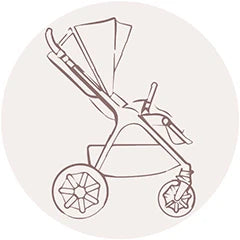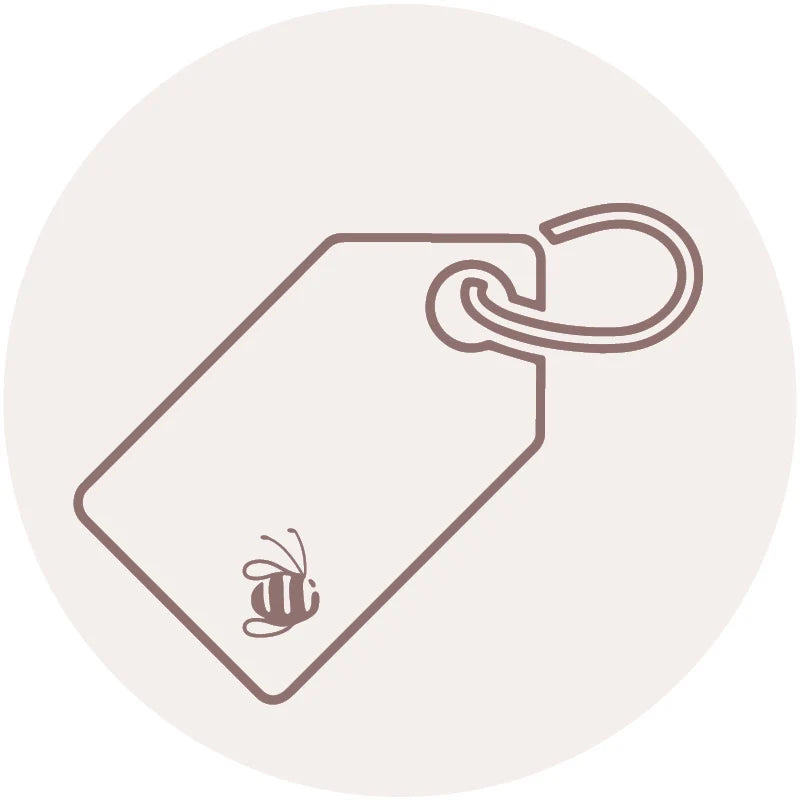Viga Pet Hospital Set
Viga Pet Hospital Set
SKU:VG44558
Low stock
Couldn't load pickup availability
Overview
Overview
Prepare to spark children's creativity with the Viga Toy Vet Hospital Set! This vibrant, portable clinic is perfect for aspiring veterinarians and animal lovers alike. Featuring four figures—a doctor, nurse, cat, and dog—along with a range of medical equipment such as a bed, IV table, monitor, stethoscope, thermometer, and medicine, kids will have everything they need to care for their furry patients.
The set comes with convenient handles and a secure metal lock to keep all the pieces in place, making it easy to take on the go. Ideal for promoting imaginative play, social interaction, hand-eye coordination, and role-playing skills, the Viga Toy Vet Hospital Set offers both fun and educational value, making it a fantastic addition to any child's toy collection.
What's Included
What's Included
Technical Specification
Technical Specification
Delivery and Returns
Delivery and Returns
- Delivery: Free within NZ on orders over $100 (excluding bulky items) or $8 standard shipping
- Returns: Accepted within 14 days of receipt with proof of purchase
- Some items are excluded from returns including sale items, hardware, car seats, prams, monitors and personal items - please click here for the full list.
Share this product
Recently Viewed Products
Related Blogs
What to put in your Hospital Go-Bag
The Big Day – Packing Your Bag for Birth The excitement of packing your maternity bag is such a beautiful moment – folding tiny clothes that will soon dress your little one, imagining the moment you’ll finally hold them in your arms. It’s a magical time, but we know it can also feel overwhelming, especially if it’s your first time. It's hard to know what you'll really need! Here’s the good news: the place you’re giving birth is likely just a short distance away from home. Your partner or family will be able to bring anything you forget, so don’t stress about having everything packed perfectly. A really practical way to prepare is to pack two separate bags – one for labour and postpartum, and one for your baby. When things start moving quickly (as they often do), having your essentials for labour in one place makes it easy to grab and go. Your baby’s bag can stay tucked away until it’s needed later. It’s a simple way to stay calm, organised, and focused on welcoming your little one. 🥰 What to Pack in Your Go Bag This bag should contain everything you’ll want need for both the big day and your recovery afterwards. Keeping it all in one place makes it easier for you and your partner to grab what you need when the time comes. Here are our recommendations, these are not all essential but many women find all of these items have helped them feel cool, calm, and collected, and make their experience a bit more comfortable. We also have a downloadable list here. For your labour and birth: Comfortable clothes for labour – whether that’s your favourite baggy t-shirt, bikini top, or nightie (or even nothing at all!) - wear what makes you feel at ease A pillow from home – comfort is key, and something familiar can help you relax Lip balm to keep your lips hydrated Hair ties or bands to keep your hair out of your face A drink bottle with a sipper top for easy hydration TENS machine or other birth aid if you if you plan to use one – we love Your Birth Weapon Music to create a soothing environment (you could create your own birth playlist!) A quick sugar hit, like jelly snakes or barley sugars, to give you energy when needed, and some high protein snacks for your and your partner like muesli bars, nuts or jerky. Electrolyte drinks are also a great way to help your body hydrate, and provide a bit of a boost. Mobile phone and charger, and a camera if you want to capture special moments For after your birth: Any regular medications you currently take Comfortable clothes and PJs for you to change into once you’ve delivered your little bundle of cuteness. And your dressing gown if you’re a dressing gown gal! Toiletries such as shampoo, soap, toothbrush and toothpaste, your hairbrush – whatever you use everyday Post Birth Care – This Pure Mama Spray is serious lifesaver to help ease any discomfort. Pair it with some postpartum undies and a soothing insert - this is the ultimate combo! A maternity bra – a maternity bra will help make things more comfortable when your milk comes in. Silverettes and Nipple Cream – The Silverettes will protect your nipples between feeding and pumping during the early days of breast feeding while your body is still getting used to the new normal. This Nipple cream by Pure Mama will help soothe discomfort. More snacks Bring a few of your favourite snacks - you'll be doing alot of sitting in those first few days and you'll need to keep your energy up. We also recommend lactation cookies – they are soo delicious and really help to support your milk come in. Two changes of clothes for your partner just in case What to Pack for Baby 🐣 Your baby’s bag should include everything they’ll need during their first few days with you. Here’s what you’ll want to pack: Clothes for baby - Warm onesies, bodysuits, pants, cardigans, socks, beanies, and booties. We’d recommend packing for two days, so three of each item should be perfect. Plus you can’t forget the special going home outfit! 📸 Our Dimples Merino range is perfect for newborns ❤️ Cotton or merino wraps for swaddling and a soft blanket for warmth White noise machine (the YogaSleep Hushh is a great option) to help settle baby Newborn nappies and Water Wipes - make sure you choose gentle products, with no perfume A stretchy wrap for carrying baby if they get unsettled Car seat – make sure it’s installed safely and ready to go home with baby (test it beforehand!) Dimples have a wide range of capsules and carseats available if you have not already purchased one. With everything packed and organised, you’ll feel more relaxed and ready for the big day. Remember, there’s no need to have everything perfect, and you absolutely don’t have to have everything on this list to have a wonderful, positive and beautiful experience! Focus on the amazing journey ahead, and know that you have everything you need for your baby’s arrival. You’ve got this, and we’re here to support you every step of the way.
Learn moreMidwife or Obstetrician – Which One?
Finding the Right Maternity Carer for You Once the excitement (or surprise!) of a positive pregnancy test settles in, one of the first big decisions to make isn’t about names or nursery colours – it’s about choosing the person who’ll care for you throughout your pregnancy journey. In New Zealand, this person is called your Lead Maternity Carer (LMC) – and they’ll be by your side during pregnancy, labour, birth, and the early weeks of life with your newborn.Both midwives and obstetricians can act as your LMC, and while they offer many of the same services, there are some key differences to consider. Here’s a gentle guide to help you choose the care that’s right for you and your baby. Midwife or Obstetrician – What’s the Difference? In general, midwives are the experts in normal, low-risk pregnancies, offering continuity of care and a more holistic approach to birth. Obstetricians, on the other hand, are medical doctors who specialise in pregnancy complications and are trained in surgical procedures such as caesareans. Midwife care is free in New Zealand. Obstetric care is private and typically costs between $3,000–$5,000. Obstetricians often take a more clinical approach and may perform scans at every appointment. Midwives focus on natural birth and provide emotional and physical support throughout your labour.If your pregnancy is high-risk – such as a twin pregnancy, gestational diabetes, or a known medical condition – you’ll likely be referred to an obstetrician, either privately or through your local hospital. Can I Use a Hospital-Based Midwife? Yes – if a private obstetrician or community-based midwife doesn’t feel like the right fit, you can also receive care through a hospital-based midwife. These midwives, sometimes referred to as “core midwives,” are employed by public hospitals and provide maternity care within the hospital system. Around 15% of New Zealand mothers choose this model, either from the start or as part of a shared-care arrangement. Hospital-based midwives typically step in when additional support is needed – for example, if complications arise during pregnancy, or if your community LMC is unavailable during labour. In many cases, you’ll receive antenatal care from a combination of professionals, including hospital midwives and obstetricians, with all costs covered through the public system. If you like the idea of continuity but want the reassurance of hospital-based expertise, this model offers a nice balance. It’s a great option for those wanting cost-free care, access to specialist services, and a supportive hospital environment. Things to Think About When Choosing Your LMC 1. How Often Do You Want to See Your Baby? If regular reassurance is important to you, you may prefer the more frequent ultrasounds offered by many obstetricians. Midwives track baby’s growth by feeling your bump and will refer you for routine scans at key stages. 2. Your Preferences Around Pain Relief If you’re keen on trying unmedicated birth methods like water, massage or movement, a midwife may be more aligned with your approach. Midwives often focus on natural techniques, while obstetricians are more likely to facilitate medical interventions such as epidurals. 3. What’s Your Budget? Having a baby is expensive – and private obstetric care can be a stretch for many families. If you’d rather invest in other baby essentials (like that dream pram or a few months of parental leave), midwifery care may make more sense financially. 4. Where Do You Want to Give Birth? Midwives support a range of birth settings – from hospitals to birth centres to your own home. Obstetricians generally operate within hospitals, and home births aren’t an option under their care. Keep in mind that medical pain relief (like epidurals) is only available in hospital settings. 5. Your Connection Matters Perhaps the most important thing is choosing someone you feel safe and comfortable with. Midwives often spend more time with you during labour and birth, and the relationship can feel more personal. Obstetricians may come and go during labour, sometimes arriving just in time for the final moments. In hospital births, midwives will still be involved – even if you’re under obstetric care. Listen to Your Instincts Like many parenting decisions, choosing the right carer is often about listening to your gut. Do you feel heard? Supported? Understood? That connection matters.Have open conversations early on about your hopes for birth – including where you’d like to deliver, your thoughts on interventions, and how involved you want your carer to be. Most importantly, know that you’re allowed to change your LMC if things don’t feel quite right down the track. This is your journey – and you deserve to feel safe, supported, and confident every step of the way. You can begin your search for a local midwife through Find Your Midwife.
Learn moreWhen Pets Meet Babies
For many families, pets are our first “babies” – loyal companions who’ve shared the couch, the bed, and plenty of milestones. So when a new human baby comes along, it’s natural to worry about how everyone will adjust.
Learn moreUnderstanding The Psychology Of Potty Training Toddlers
Potty training isn’t just about learning a new skill - it’s a big emotional and developmental milestone. Understanding what’s happening in your child’s mind can transform the experience from a power struggle into a confidence-building journey.
Learn more




















